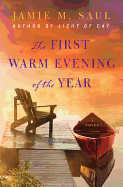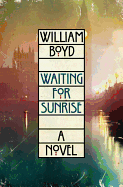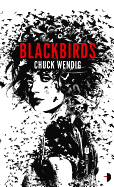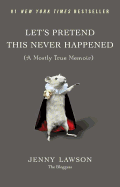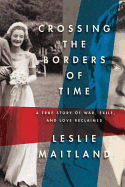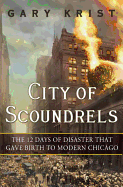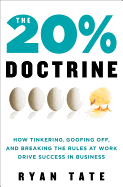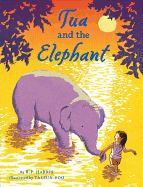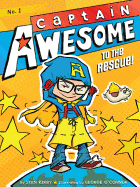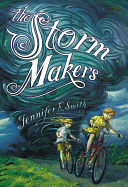Earlier this month, Atria sent four authors--John Connolly, William Kent Krueger, Liza Marklund and M.J. Rose--on a bookstore tour stretching more than 2,300 miles, from Vermont to Missouri, to visit bookstores, meet people, sign books and promote mysteries. John Connolly sent us a dispatch from Atria's Great Mystery Bus Tour:
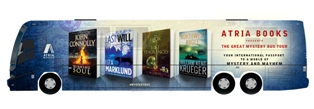 Why?
Why?
This was the question that sprang to the lips of booksellers, readers, the drivers with whom we shared 2,000 miles of road and, indeed, the four authors as we trundled halfway across the United States. Why are we here? (If Jean-Paul Sartre were on the bus he'd have had a ball, although he'd probably have dragged the mood down a bit.)
Yes, we were celebrating the 10th birthday of Atria Books, and promoting our own books along the way, but more than that, we were giving a vote of confidence to bricks-and-mortar bookstores, and to the beauty and practicality of the printed book in general.
Look, in recent times a certain amount of hostility seems to have crept into the discourse over e-books vs. print books, with its nadir being the casual manner in which certain e-book proselytizers toss around the phrase "dead tree publishing" to describe printed books, thereby snarkily dismissing everything from the Gutenberg Bible to that beloved, battered paperback that you've kept from childhood. But e-books and print books are not the same thing, and each will have its place in the future of reading.
There is a convenience to e-readers, and there is no denying the extraordinary advances that now allow us to carry around a virtual library in our bags. But that's just the point: it's a virtual library, not an actual one. Those of us who treasure books love being surrounded by them, whether in a local library, or in a bookstore, or in our own home. It's why we hold on to books even after we've read them. They become markers in our lives, a reminder of where we were in our existence when we read that book. We experience a small Proustian rush when we come across a volume gifted to us by a lover or when we hold a book retained from the collection of our parents, beloved of them and now beloved of us. These little artifacts, these humble constructs that age and weather just as we do, are expressions of our inner selves made manifest both to ourselves and to others. They must be treasured, not dismissed as relics of a bygone age with no purpose in this bright new universe of brushed steel and touch screens, and the places in which they can be found, our bookstores and libraries, must also be protected, because if we let them disappear they will be gone forever, and they will not return.
So we ask ourselves this: Will our world be a poorer place without bricks-and-mortar bookstores, and if a library is something that one accesses only on a screen? For me, and for my publisher, the answer is yes.
And that's why we were on the bus. It's as simple, and as complex, as that.
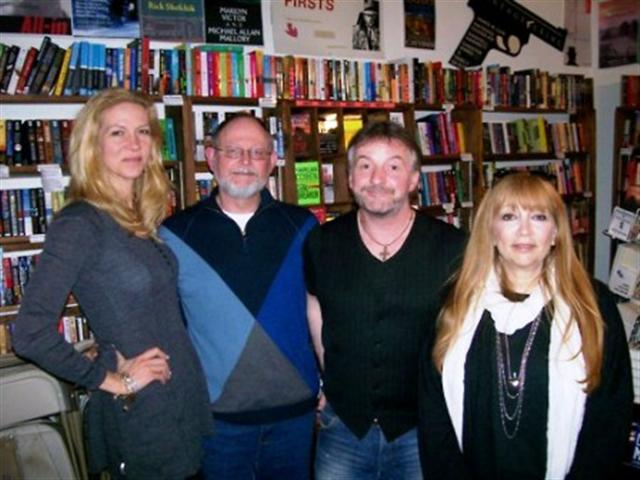 For a writer, being trapped in a small, enclosed space with three other writers, a publicist, two assistants, a cameraman and a bus driver is an odd experience. Writers, by and large, do not play well with other children. It's one of the reasons why we become writers: writing gives us an excuse to indulge the solitary aspect of ourselves, to retreat into our cocoon and allow the mystical process of writing to begin--or, alternatively, to buy stuff that we don't need on eBay and watch videos of cats falling off tables.
For a writer, being trapped in a small, enclosed space with three other writers, a publicist, two assistants, a cameraman and a bus driver is an odd experience. Writers, by and large, do not play well with other children. It's one of the reasons why we become writers: writing gives us an excuse to indulge the solitary aspect of ourselves, to retreat into our cocoon and allow the mystical process of writing to begin--or, alternatively, to buy stuff that we don't need on eBay and watch videos of cats falling off tables.
Some of us found it hard to write on the bus, for a variety of reasons. William Kent Krueger seemed to manage both to read and write easily enough, but he's from the Midwest and exudes the Zenlike calm of "Minnesota nice." Liza Marklund got a little writing accomplished, but the motion of the bus did for her in the end, and I think it was a similar case for M.J. Rose. I didn't even try writing, as I knew from past experience that there wouldn't be enough drugs in the world to prevent me from taking a trip down Vomit Alley.
So, what to do? We watched stuff on our computers (Breakfast at Tiffany's for M.J.; The Wire and Deadwood for me); we tried to do a little e-mail when the bus wasn't swaying too much; we napped; we played video games....
And we talked, because here's the thing: the opportunity rarely comes along for a writer to talk at length with other writers about not only the craft of writing, but about being a writer. Oh, we meet up at conventions or in bars after events, but it's usually late in the evening, and there's alcohol taken, and there are other people around, maybe readers or booksellers, and in mixed company writers get a bit sheepish about discussing writing too deeply for fear of being considered pretentious.
What did I learn from these conversations? Well, I learned how different we all were from each other, but also the similiarities. Most of us were troubled by doubt about the value of our work. We were all rewriters of one kind or another. One of us enjoyed the writing of the first draft, but for the rest it was torture. Only one of us was brave--or foolhardy--enough to go back and take a look at his earlier books in an effort to come to some semi-objective assessment of their worth.
And we found out that each one of us had always written, ever since childhood. The desire to tell stories of our own followed naturally from our own explorations in reading. Books and stories were our way of examining the world and, ultimately, ourselves.
When we finally left the bus after 2,000 long, swaying miles, I thought to myself that I'd miss those three writers.
Not enough to get back on that bus, not without a gun to my head, but I'd miss them....
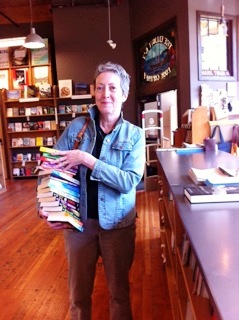 My mission was to fill in the gaps in my Robert B. Parker collection--I needed a total of 39 Spensers, 10 Jesse Stones and six Sunny Randalls, in order to reread them all. I purchased an armload stretching from my thigh to my shoulder. The impetus was twofold: I had just read and loved the pre-pub edition of Robert B. Parker's Lullaby by Ace Atkins (due out May 1), who is continuing the Spenser series, and I was finishing In Pursuit of Spenser, a festschrift in honor of the iconic Parker, who died in 2010. Edited by Otto Penzler, the collection delves into all things Spenser and Parker, with side trips for Parker's westerns (by Ed Gorman) and Jesse Stone series (Reed Farrel Coleman). Susan Silverman (S.J. Rozan), Hawk (Gary Phillips) and Boston (Dennis Lehane) also get their due.
My mission was to fill in the gaps in my Robert B. Parker collection--I needed a total of 39 Spensers, 10 Jesse Stones and six Sunny Randalls, in order to reread them all. I purchased an armload stretching from my thigh to my shoulder. The impetus was twofold: I had just read and loved the pre-pub edition of Robert B. Parker's Lullaby by Ace Atkins (due out May 1), who is continuing the Spenser series, and I was finishing In Pursuit of Spenser, a festschrift in honor of the iconic Parker, who died in 2010. Edited by Otto Penzler, the collection delves into all things Spenser and Parker, with side trips for Parker's westerns (by Ed Gorman) and Jesse Stone series (Reed Farrel Coleman). Susan Silverman (S.J. Rozan), Hawk (Gary Phillips) and Boston (Dennis Lehane) also get their due.


 Why?
Why? For a writer, being trapped in a small, enclosed space with three other writers, a publicist, two assistants, a cameraman and a bus driver is an odd experience. Writers, by and large, do not play well with other children. It's one of the reasons why we become writers: writing gives us an excuse to indulge the solitary aspect of ourselves, to retreat into our cocoon and allow the mystical process of writing to begin--or, alternatively, to buy stuff that we don't need on eBay and watch videos of cats falling off tables.
For a writer, being trapped in a small, enclosed space with three other writers, a publicist, two assistants, a cameraman and a bus driver is an odd experience. Writers, by and large, do not play well with other children. It's one of the reasons why we become writers: writing gives us an excuse to indulge the solitary aspect of ourselves, to retreat into our cocoon and allow the mystical process of writing to begin--or, alternatively, to buy stuff that we don't need on eBay and watch videos of cats falling off tables.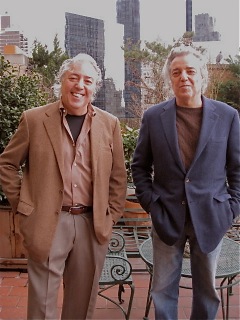 Ariel Warning is about betrayal. The betrayal of a twin, of one's universe. In writing this novel, I journeyed to a multitude of shores. Examined my own inner life, as well as everything that comes out of the deepest underbellies, especially the imagination. Never once did I think of doing anything other than making sure my novel travelled roads that my imagination dictated and later, working on my craft. At this stage, I have some craft. That was not always true. For years my identical twin, Richard, was my Maxwell Perkins. He inspired and tweaked my manuscripts, just as Perkins guided Hemingway. My cerebral responsible twin was a good editor. As good as it gets. But Ariel Warning was different. This was my book.
Ariel Warning is about betrayal. The betrayal of a twin, of one's universe. In writing this novel, I journeyed to a multitude of shores. Examined my own inner life, as well as everything that comes out of the deepest underbellies, especially the imagination. Never once did I think of doing anything other than making sure my novel travelled roads that my imagination dictated and later, working on my craft. At this stage, I have some craft. That was not always true. For years my identical twin, Richard, was my Maxwell Perkins. He inspired and tweaked my manuscripts, just as Perkins guided Hemingway. My cerebral responsible twin was a good editor. As good as it gets. But Ariel Warning was different. This was my book.